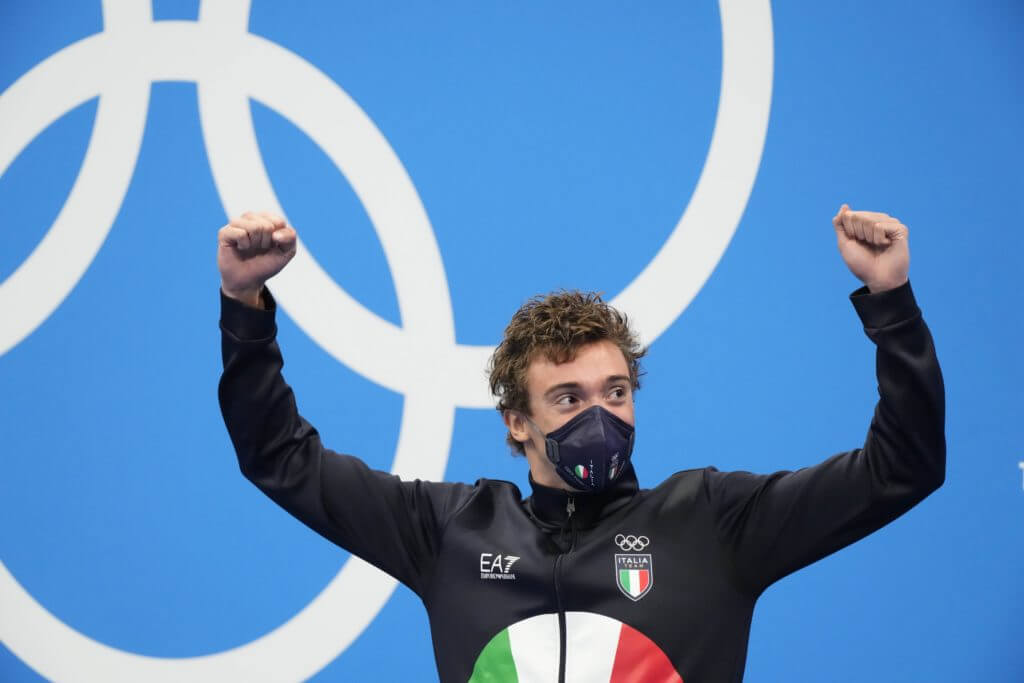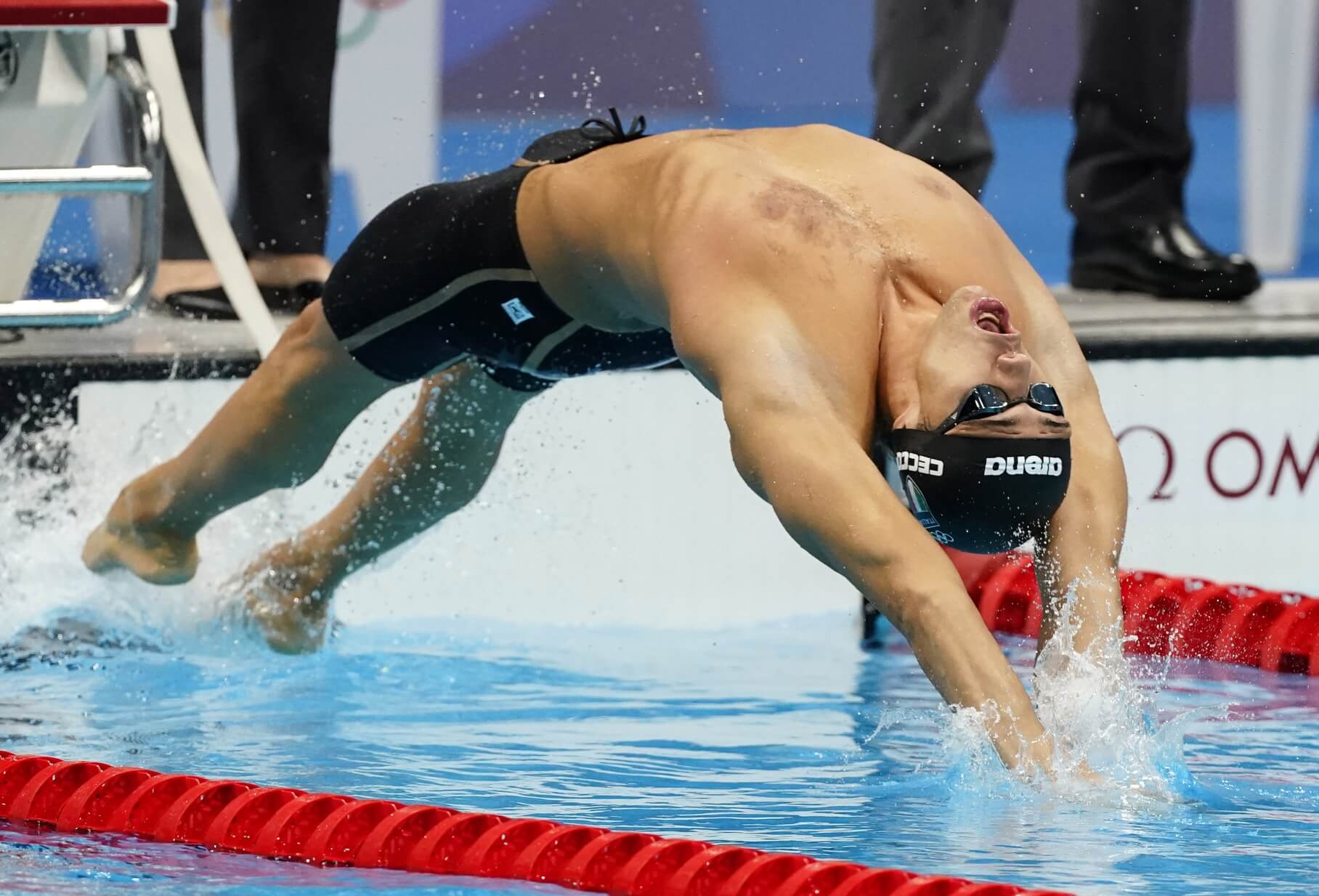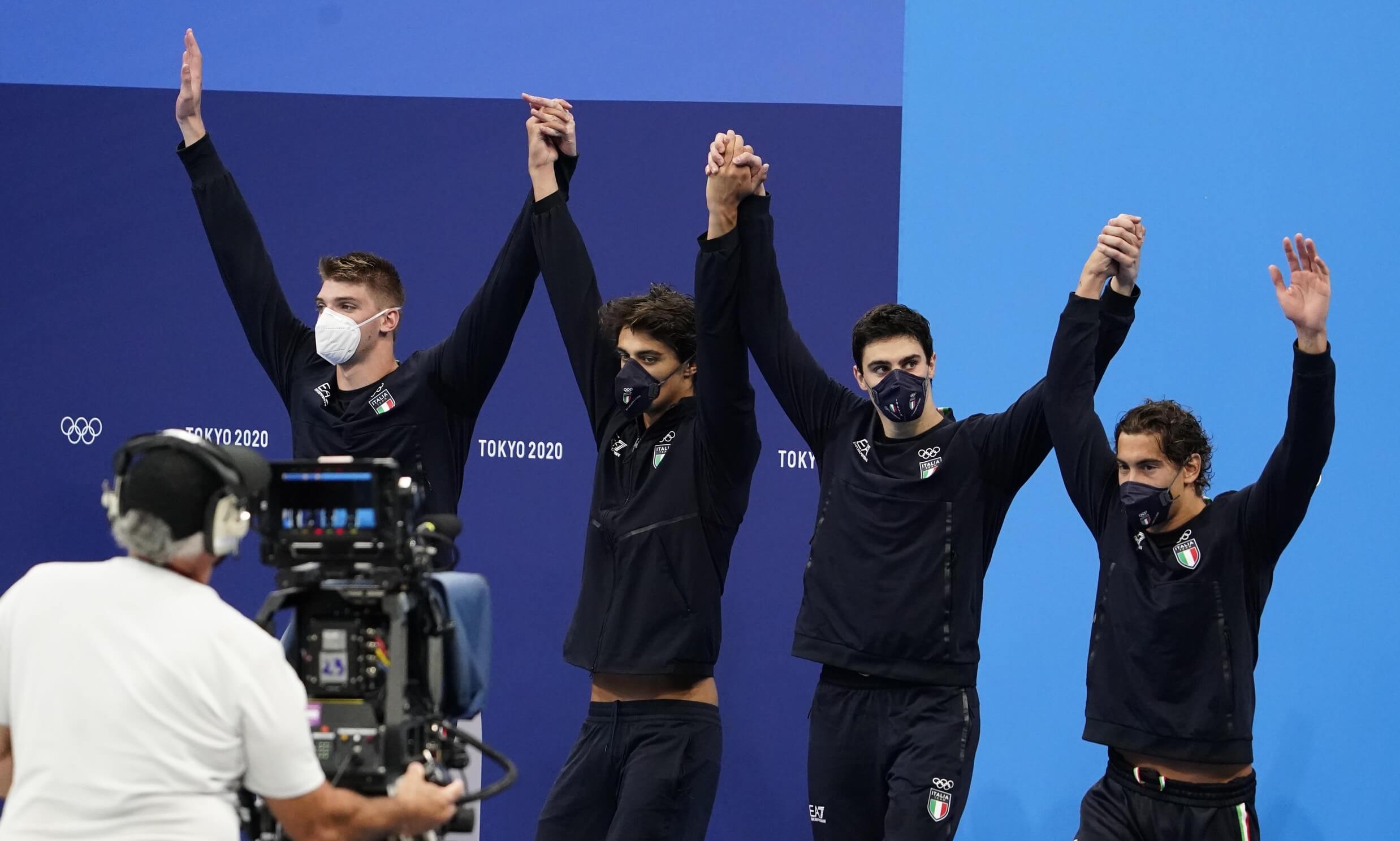Olympics: How Federico Burdisso and Italy Became One of the Games’ Top Swimming Stories

Editorial content for the 2021 Tokyo Olympic Games coverage is sponsored by GMX7.
See full event coverage. Follow GMX7 on Instagram at @GMX7training #gmx7

Olympics: How Federico Burdisso and Italy Became One of the Games’ Top Swimming Stories
There should’ve been no secret entering the Tokyo Olympics about the Italian swimming delegation.
Just two months prior to the open of competition in Tokyo, the Italians won the team competition at the European Championships in Budapest. They topped the medal table with 44 awards, leading the way in both swimming and open water. In nine relays, the Italians emerged with eight medals.

Thomas Ceccon; Photo Courtesy: Rob Schumacher-USA TODAY Sports
So a yield of seven medals from the Tokyo Games might not have seemed outlandish. But for a country with a scant history of success on the Olympic stage – just 20 all-time medals entering Tokyo – the sudden prevalence of Il Tricolore flying at the Tokyo Aquatics Centre is notable.
Even more impressive is the how they got it done. In the past, Italy’s medals have tended to come from one or two standouts across similar events – think Domenico Fioravanti’s triple gold and Massimiliano Rosolino’s mid-distance prowess in Sydney. But this year’s haul came across multiple events, with two relays included, and a young contingent that has more to offer in the future.
“Surely for Italy, it’s a big deal because it’s the Olympic Games,” Federico Burdisso said. “And we are a very young team, especially the relay was I think the youngest one, and we did it.”
Italy’s wins came across the board. Burdisso won bronze in the men’s 200 butterfly. Nicolo Martinenghi did the same in the men’s 100 breast. (The all-European podium there, with Adam Peaty and Arno Kamminga, was the first for a men’s event since the 200 breast in 1996.) Gregorio Paltrinieri, one of the expected veteran contributors, took silver in the men’s 800 free and then bronze in the men’s 10k, and Simona Quadarella earned bronze in the 800 free.
But the biggest sign of Italian progress came in the men’s relays, where Italy grabbed silver in the 400 free and bronze in the 400 medley. Thomas Ceccon and Alessandro Miressi were on both foursomes, the latter with Burdisso and Martinenghi.
“It is so awesome for Italy to win this medal,” Miressi said after the 400 free relay. “It is the first time we really win a medal in this event. We are very happy.”

The Italian men’s 400 free relay that won silver; Photo Courtesy: Rob Schumacher-USA TODAY Sports
The Italians have the makings of a special generation, particularly on the men’s side. Though Paltrinieri and fellow distance star Gabriele Detti are 26, the stroke specialists are younger. Martinenghi and Miressi are just 22. Ceccon is 20. Burdisso is a mere 19. On the women’s side, Benedetta Pilato is a rising world junior record holder. Quadarella turns 23 in December, though the women’s distance ranks are difficult to break into.
Quadarella had a gutsy performance for the only women’s medal. After falling to fifth as a nonfactor in the medal contention for the 1,500, she rallied in the 800 to deny American teen Katie Grimes, the clear third choice behind Katie Ledekcy and Ariarne Titmus.
“I am very happy because the 1500 went very bad,” she said. “I tried to get a medal (in the 1500) and I didn’t, so I am very happy with one in the 800. I tried to delete the performance in the 1500 and the 800 was another chance for me I tried to reset my head. I wanted to get this medal.”
With the haul from Tokyo, Italy has 11 swimming medals (nine in the pool) over the last two Games. They had just five medals from the previous three Games. The seven medals in Tokyo surpasses the yield of six from Sydney in 2000 (with Fioravanti and Rosolino) for the most in history.
It’s been a notable summer for Italian sports, from the men’s soccer team winning Euro 2020 to the breakthrough for a pair of golds in track and field. But Italian swimming has carved out a deserved niche in that attention, getting an admirable level of support from back home.
“I think what we did is amazing,” Federico Burdisso said. “Obviously I know a lot of people who woke up at 3, 4 a.m. to follow our race on the TV, and that’s amazing. That’s pretty cool. I want to thank all the people that woke up so early in the night to watch us. That’s really the support we needed.”




